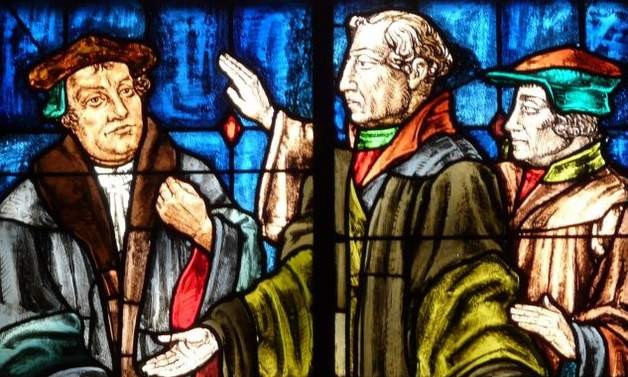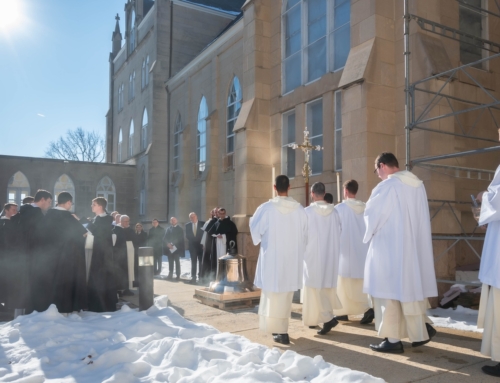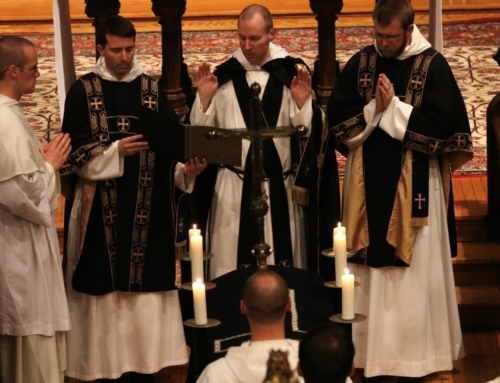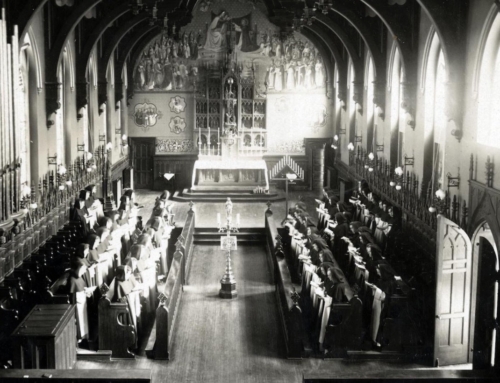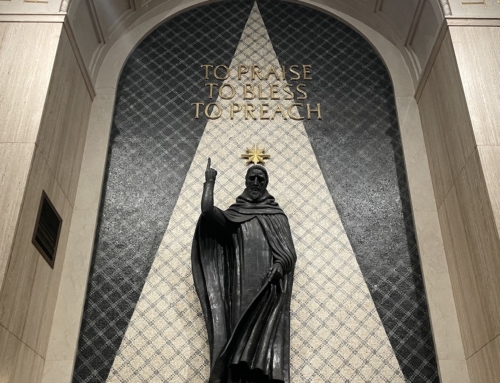If you ask a Dominican to compare the success of the Order of Preachers to that of the Society of Jesus, you may be treated to the following jocular comment: “Well, the Dominicans were founded to defeat the Albigensian heresy and the Jesuits were founded to defeat the Protestant Reformation. How many Albigensians do you see running around today?”
As a convert and student of the Reformation I have always found this comment a bit ironic. And not because of the obvious historical fact that, at least according to Luther, we Dominicans got the whole “late unpleasantness” started with the preaching of Johann Teztel, O.P., and his famous ditty: “As soon as a coin in the coffer rings / a soul from purgatory springs.” This fact alone should incline any Jesuit enthusiast to retort to the Dominican heckler, “You started it! Clean up your own mess!”
But, and I always fear giving Jesuits anti-Dominican ammunition, it is a lesser known although more crucial figure of the Reformation that proves the joke’s irony. For if there were a Time magazine of the Reformation, and if it were in the habit of recognizing a “Man of the Reformation,” it’s almost certain that this honor would go to an ex-Dominican friar named Martin Bucer.
Bucer was a Reformation force; he had his hand in almost every strand of Protestant development. Born in Schlettstadt, Germany, in 1491, he joined the Order of Preachers at age sixteen and was ordained to the priesthood in 1516. He taught at the Dominican studium until 1521, when he left the Order to begin his career as a reformer. He moved to Strasbourg, leading the reformation in that city. Bucer was a theological polymath. He was conditioned, according to Ian Hazlett, “by an extraordinary coalescence of humanist, Erasmian, Aristotelian, Thomist, Neoplatonist, Augustinian, Lutheran, and biblical influences.” This vast learning, owed to his Dominican education and formation, allowed him to be the “Elder Statesman” for the major branches of the Reformation: Lutheran, Calvinist, and Anglican.
Bucer was with Luther from the beginning, encountering him at the Disputation of Heidelberg in 1518 and undergoing a religious conversion based upon this encounter. He continued to play a key role in Lutheran theological development through his work with Philip Melanchthon and his various failed attempts at union between Luther and Zwingli. In Strasbourg, Bucer mentored the young John Calvin during a time when, as Bernard Cottret writes, “Calvin became ‘Calvin.'” This young French Reformer took what he learned from Bucer and went back to Geneva to found the center of Reformed Protestantism, one of the most famous—or infamous—cities in Western civilization.
Just in case the Continent wasn’t enough, Bucer moved to England during the trials and travails of the Reformation there in the 1550s. He was a key advisor to Archbishop Thomas Cranmer, and the English Reformer happily looked to the man of Strasbourg for theological and political counsel. While Strasbourg itself did not live up to its aspirations as the Rome of the Reformation, Bucer asserted a quasi-papal influence around the globe during the Reformation, and a significant reason for his power was, without a doubt, his training as a Friar Preacher.
So what can we learn from this less-edifying episode in the history of the Dominican Order? Two things, I think. First, while Dominican involvement in the Reformation and Counter-Reformation was by no means all negative (think of Cardinal Cajetan and Pope Pius V, as well as all those delightfully Thomistic decrees from Trent!), Martin Bucer is a reminder that the greater the climb, the greater the potential fall. St. Thomas argues that, because of his greater excellence and thus greater temptation to pride, it is understandable that it was the highest of the angels—not some pipsqueak angel!—who fell from grace (see ST Ia. q. 63, a. 7). The devil is no idiot, but expansive erudition is no infallible guard against sin, or even against heresy or schism.
Secondly, and more positively for poor Bucer, while his great learning allowed him to be so influential during those years, his campaign was always one of reunion with the Church, not absolute separation. Before Trent he was at the forefront of all dialogues and colloquies between the Catholic Church and the Protestant traditions; he urged troubled Catholics not to leave the Church but to attempt reform within, and he even accorded a primacy of honor to the pope. His was not the radical withdrawal of Zwingli, of the older Luther, or of Calvin, and, when members of these more separatist groups challenged his commitment to the Reformation, he chided them by saying: “It is all very well for those supping wine and beer in cosy bars to rubbish those who slave away at these controversies and struggles.” Perhaps his residual Romanism and drive for reunion was due to his solid scholastic theology in the Dominican studium.
There may not be any Albigensians running around these days, but there are still plenty of separated brethren of the various Protestant communities, and in large part due to this former Dominican. And if Bucer’s Dominican heritage allowed him to influence all the strands of Protestantism, so too can this same Dominican tradition allow us not just to engage with his ecclesial heirs, but to achieve the reunion of all Christians in Christ’s Church.
✠
Image: Josef Ehrismann, Martin Bucer as a Mediator between Martin Luther and Huldrych Zwingli

